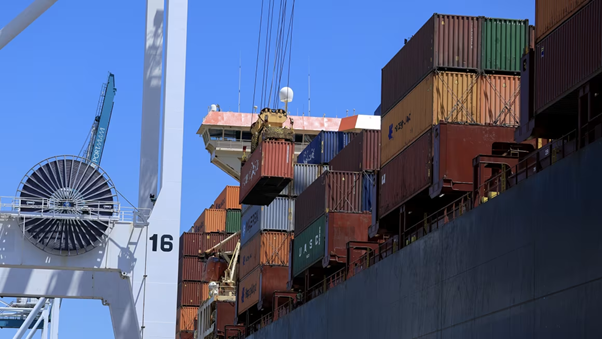Tariff Tensions Disrupt Prices, Jobs, and Consumer Demand Across U.S. Industries

(Source: edition.cnn.com)
By Bryan Mena, CNN
Economic Uncertainty Grows Amid Tariff Pressures, Say U.S. Businesses
Across several U.S. regions, businesses are feeling the pressure from shifting trade policies. In New England, a clothing retailer adjusted price tags for summer items to absorb tariff-related costs. A car dealership in upstate New York reported a drop in inventory due to consumers rushing to buy ahead of anticipated price hikes. Meanwhile, an electronics manufacturer described the impact of recent trade moves as highly disruptive to operations.
These insights were drawn from new business surveys issued by the Federal Reserve, the Institute for Supply Management (ISM), and S&P Global. Collectively, the reports highlight how businesses of all types are navigating a climate of uncertainty, largely due to President Donald Trump’s unpredictable tariff strategies.
In the Federal Reserve’s latest “Beige Book” — a summary of business conditions — the term “tariffs” appeared 80 times, while “uncertainty” was cited 76 times, reflecting widespread concern among companies. The surveys show these policies are influencing inflation, hiring decisions, and financial performance, with consumers unsure whether to make purchases now or wait.
These kinds of business surveys are critical for economists and policymakers, offering early signals of shifts in the economy before official government statistics are released.
Price Increases and Hiring Slowdowns
While legal challenges continue against many of the tariffs, companies report rising input costs. Several businesses have already passed these expenses to customers. For instance, a chemical manufacturer told ISM that their suppliers are transferring the full cost of tariffs to them, treating them as a tax — one they must then pass on.
Similarly, a heavy equipment supplier in the New York area admitted to increasing prices even on items not yet affected by tariffs to maximize profits ahead of rising costs. Survey responses for the Beige Book were gathered from late April through May 23, and do not include business reactions to recent court rulings challenging the legality of the president’s tariff actions.
Many firms in manufacturing and construction are hiking prices to account for more expensive materials like steel, compounded by the doubling of U.S. tariffs on steel and aluminum imports to 50%, which is expected to drive up costs on building projects and appliances.
Tariffs are also influencing employment. A staffing agency in the Chicago region noted that businesses are delaying hiring due to economic unpredictability. One Virginia-based consultant told the Fed they are planning to reduce staff by 20% because of falling revenues and business uncertainty.
Consumer Spending Spree Slows
In early 2025, shoppers were eager to buy ahead of expected price increases, especially for big-ticket items like cars. Data from the Commerce Department showed a 1.7% jump in retail sales in March — the biggest in two years — driven largely by automotive purchases. However, this trend quickly cooled in April.
With a 25% tariff now imposed on imported cars and auto parts, demand may soften further. The Fed noted that one dealership anticipates consumers will pull back starting in June due to rising prices. In the Philadelphia region, some auto sellers have already noticed a slight dip in sales.
Beyond vehicles, other retailers are observing signs of weakening consumer interest. In the St. Louis area, businesses reported a modest drop in sales, particularly for non-essential goods.
Reference:




Comments :